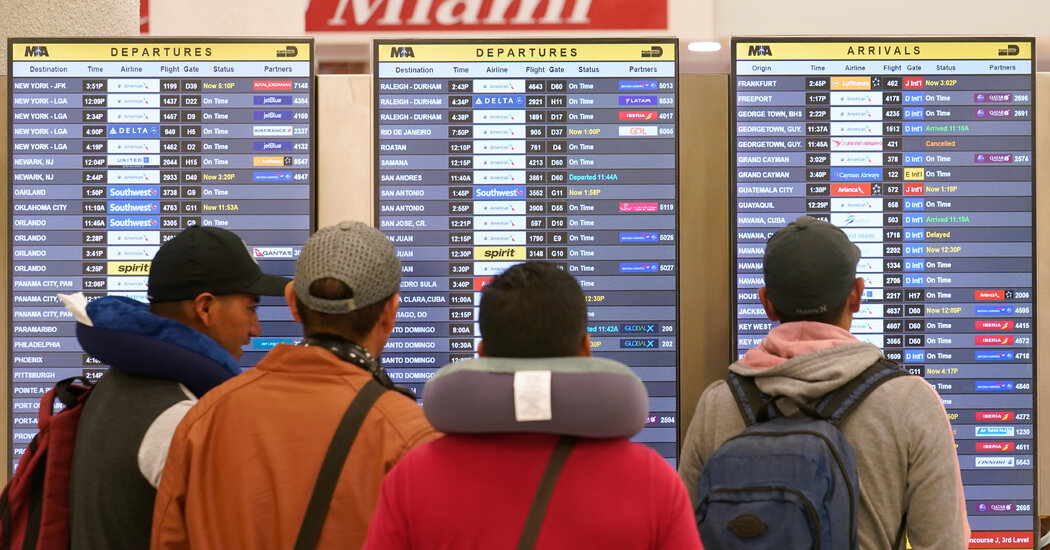Airline passengers in the United States faced extensive flight cancellations and delays this weekend, caused by a huge demand for travel coupled with widespread staff shortages.
From Friday through Sunday, airlines flying in, to or out of the United States, according to FlightAware, a flight-tracking website, canceled more than 1,400 flights, leaving some passengers headed for long-awaited summer vacations stranded and angry. made. In addition, more than 14,000 flights were delayed this holiday weekend, according to the site’s data.
Some airlines seemed to struggle to cope with passenger volumes approaching or in some cases exceeding prepandemic levels. On Friday, the Transportation Safety Administration screened more passengers — 2.49 million people — than on any other day this year. That surpassed the 2.18 travelers screened on July 1, 2019, before the pandemic.
The experience was frustrating for some US airline passengers. On Saturday, 1,048 — or 29 percent — of Southwest Airlines flights were delayed, as were 28 percent of American Airlines flights, according to FlightAware. United Airlines and Delta Air Lines had similar problems, with 21 percent and 19 percent of their flights also delayed. On Sunday, in the middle of the holiday weekend, travelers seemed to be getting a reprieve from the worst of the problems.
“Obviously, if your flight is delayed or canceled, that’s a disaster,” said Robert W. Mann Jr., a former airline executive who now heads the aviation consulting firm RW Mann & Company.
In a typical month, Mr Mann noted, about 20 percent of flights have been delayed or cancelled. But this holiday weekend, he said, about 30 percent of flights had been delayed or canceled — a 50 percent increase. “It’s a little worse than usual,” he said.
Pressure on airlines was compounded this weekend by a failure in the pilot scheduling system at American Airlines that left pilots dropping thousands of flight orders for July. The airline said on Saturday it did not expect an “operational impact” due to the outage.
But the Allied Pilots Association, American Airlines’ pilots’ union, said the airline had unilaterally reinstated the dropped trips without the pilots’ consent. The union said it pressured the airline to pay an “inconvenience premium” to pilots affected by the scheduling system problems.
In a nod to the mounting frustrations of passengers this summer, Delta Air Lines CEO Ed Bastian apologized last week.
“I know that many of you may have experienced disruption, some significant, in your travels as we build our operation back from the depths of 2020 while meeting record levels of demand,” Mr Bastian wrote in a LinkedIn post. He added: “While the majority of our flights continue to operate on time, this level of disruption and uncertainty is unacceptable.”
In an email, Morgan Durrant, a spokesperson for Delta, said the airline manages “the compounding factors” of inclement weather and air traffic control delays, which affect flight crew availability. The airline “worked around the clock to make Delta’s operation as resilient as possible to minimize the ripple effect of disruptions,” said Mr. Durrant. “However, some operational challenges are expected this holiday weekend.”
However, as the holiday weekend progressed, the spate of flight problems began to subside. By Sunday evening, Delta had canceled just 1 percent of its flights and delayed just 15 percent of Southwest Airlines’ flights, according to FlightAware.
Southwest said Sunday it is delivering “a safe, reliable experience on our network with currently less than 10 total cancellations” for the day.
American Airlines and United Airlines did not immediately respond to emails requesting comment.

